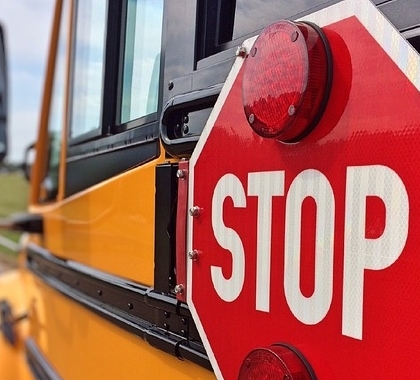A bill to bring education savings accounts (ESAs) to students in Washington, DC is awaiting approval by a congressional committee, which must approve the proposal before it can come before the House or Senate for a vote.
U.S. Sen. Ted Cruz (R-TX) introduced Senate Bill 2455, the Educational Freedom Accounts Act, in January 2016. Cruz’s website says his bill is “modeled after Nevada’s recently passed [ESA] law, would allow every student enrolled in District of Columbia Public Schools (DCPS) to receive the amount that DCPS would normally spend per pupil in a parent-controlled account. Parents would then be able to completely customize their child’s education by spending those dollars on any combination of education needs.”
SB 2455 was assigned to the Senate Finance Committee and has not moved past the committee phase.
‘Money Follows the Student’
Jason Bedrick, a policy analyst with the Cato Institute’s Center for Educational Freedom, says ESAs expand education beyond traditional school buildings.
“Essentially, the money follows the student,” Bedrick said. “In the case of a voucher, the money follows the student to the school of the family’s choice. With an ESA, the money is put into an education savings account, which is sort of like a [health savings account] in that it’s a flexible spending account. It’s not just savings for college; it’s something that families can use for private school tuition like vouchers and also for tutors, textbooks, homeschool curricula, online learning. They can save it over from year to year for later expenses, like in high school or even college.
“The idea is to get out of this mindset that education is just something that takes place in a building called a ‘school,'” Bedrick said. “There are many different ways that students are educated. We’re giving families more flexibility and opportunities to customize their child’s education, and the ability to save from year to year so there’s an incentive to economize, as well.”
‘100 Percent Satisfaction’
Arizona parents are universally satisfied with their state’s ESA program, Bedrick says.
“[In Arizona] there was a study I put out with Jonathan Butcher of the Goldwater Institute a few years ago [in which] we conducted a survey of the parents participating in the ESA program and we asked them how satisfied they were with the program,” Bedrick said. “It was 100 percent satisfaction. Now, that might sound like, ‘Well, you’re giving people free money, so of course they’re going to be satisfied.’ But these parents all could send their children to the public school system for free as well, and there was not 100 percent satisfaction [there]. As a matter of fact, only about half said they were satisfied.
“In our survey, the lowest-income families participating in the program were the most likely to say they were the most satisfied with the program, and they were also the most likely to say that they were dissatisfied with their previous public school,” Bedrick said. “Everybody was satisfied with the program, but it was the lowest-income families that went from being the worst off to the best off.”
Voting for School Choice
Israel Teitelbaum, cofounder of the Alliance for Free Choice in Education, says voters must make their desire for parental choice known at the polls.
“School choice is now a top issue in this year’s election, for the very first time since 1955,” Teitelbaum said. “This provides every American voter the ability to use the leverage of their vote to prevail on our public officials to honor their oath of office and pass school choice legislation without delay.
“Parental choice is the only way for educators to be accountable to parents, who are primarily responsible to raise and educate their children,” Teitelbaum said. “This is the time for every American voter to come to the aid of their country. Now that all 435 House seats and 34 in the U.S. Senate are up for election, this is the time for us to burn up the phone lines to Congress to prevail on our representatives to honor their oath and sign on to the Educational Freedom Accounts Act.”
Elizabeth BeShears ([email protected]) writes from Trussville, Alabama.




